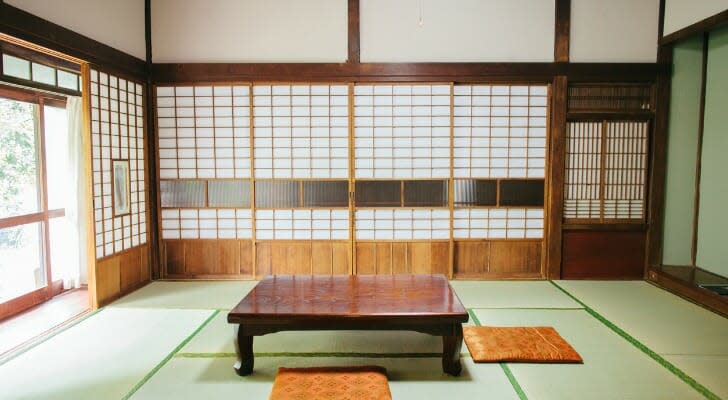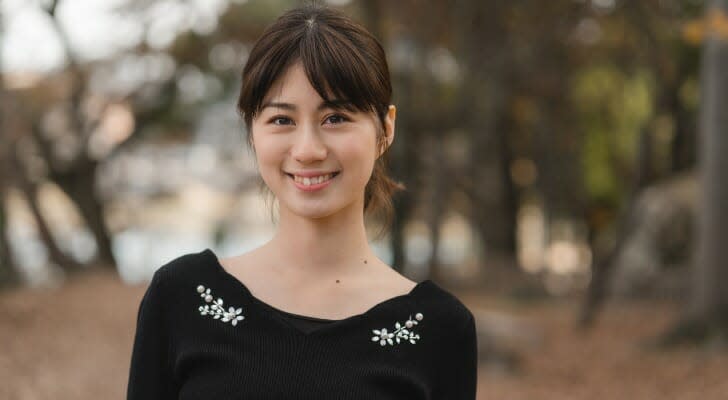I Want to Retire in Japan. What Do I Need?
Japan is known for bullet trains, amazing cuisine and some of the cleanest, litter-free streets in the world. Overall, the nation is a beautiful place to both visit and live. In addition to its beautiful landscapes, there are plenty of reasons that people choose to retire in Japan. If you’ve dreamed of retiring to a beautiful country with plenty of good food then Japan might be the perfect retirement destination for you. But before you pack your bags, consider planning your move out with the help of a financial advisor.
Getting a Japanese Visa
Not only is Japan a popular tourist destination, but it’s easy for Americans to enter Japan as tourists. Americans can enter Japan without a visa and are able to stay up to 90 days visa-free and are assigned Temporary Visitor status. This is a single-entry visa, but tourists can apply for two trips within six months if they want.
If you want to stay longer than 90 days, you will have to gain a working visa or a spouse visa. This means you must either work in Japan or marry a Japanese citizen.
The final way to get a permanent resident visa takes many years. First, you must stay in the country for three years on one-year visas. Then, you will be able to apply for a long-stay visa. This visa requires a Certificate of Eligibility from the Ministry of Justice. To get this certificate, you must meet several criteria of the Immigration Control Act.
The long-stay visa lasts three more years. After the first six years, you can apply to become a Japanese permanent resident. You must go through a testing process to prove that you are fluent in Japanese and have a strong understanding of Japanese culture.
Housing Costs in Japan
Japan has a notoriously high cost of living, according to March 2022 data from Numbeo. Overall cost of living in the United States is 6.11% lower than in Japan. However, housing costs in Japan are about 40% lower than in the United States.
The national average housing cost for a one-bedroom apartment in the city center of Japan is $726 per month. In the United States, the same apartment would cost $1,376 per month. Furthermore, for a one-bedroom apartment in central Tokyo, for example, rent is about $1,226. In the center of New York, by comparison, a one-bedroom apartment costs about $3,344 on average. Outside of the city center, the same apartment in Tokyo would cost about $677, and in New York would cost about $2,268. Despite the relative value of housing costs in Tokyo, the city is still among the most expensive in the world.
Because rent is significantly less in Japan than in the United States, you can live a similar lifestyle for less. The cost of consumer goods is also a bit less in Japan than in the United States, so your overall lifestyle will be less expensive in Japan than in America.
Taxes in Japan
It’s very difficult to get a permanent resident visa or a long-term visa in Japan. However, if you do obtain one of these visas, you will be subject to taxes. If you’re a non-resident and have a one-year visa, you will only pay taxes on income earned in Japan. Conversely, if you are a non-permanent resident and have lived in Japan for less than five years, you will pay income taxes on all of your income except foreign income that does not get sent to Japan. If you are a permanent resident, you will pay taxes on all income earned in Japan and abroad.
As a U.S. resident, you will be expected to file taxes in the U.S. each year. You will have to report any foreign bank accounts as well. If you earn any money outside of the U.S., you can use a few different provisions to reduce your U.S. taxable income. These include the foreign earned income exclusion, the foreign tax credit and the foreign housing exclusion, among others. If you’d like to forecast your tax burden more specifically, you may want to consult with a tax expert who is familiar with both U.S. and Japanese tax laws.
Healthcare in Japan
The Japanese public healthcare system is consistently ranked in the top ten healthcare systems in the world by the World Health Organization. This ranking is based on efficiency, quality, responsiveness, and fairness in financing. The government pays for around 70% of healthcare costs for residents and pays more for low-income residents. People pay into this system with their taxes.
Anyone who legally lives in Japan for over one year can enroll themselves in the National Health Insurance or Employees’ Health Insurance programs. When you are insured, you will only have to pay 30% of your medical expenses. These medical expenses include appointments, hospital visits, and prescriptions.
Safety in Japan
Japan has a very low crime rate. As when traveling anywhere, travelers are warned to be mindful in crowded spaces, as pickpocketing and other petty crime do happen. Overall, the food quality is very high in Japan and there is very little risk of foodborne illness.
Japan is prone to earthquakes and other natural disasters. While these are not daily occurrences, it is important to be aware that these things do happen. Fire is the second most dangerous natural disaster in Japan, especially during an earthquake.
If you feel at risk, Japan has “kobans” around cities. A koban is a small police box, which is free to use and provides a direct line to the police department If you have been robbed or have other emergencies to report, these are free to use.
Bottom Line
Japan is a stunning destination and highly sought after by Americans who want to retire abroad. It is very difficult to gain residency in Japan, but if you do, it can be a great place to retire. The healthcare system is one of the best in the world.
Tips for Achieving Your Retirement Goals
Consider talking to a financial advisor about your retirement plans abroad. Finding a qualified financial advisor doesn’t have to be hard. SmartAsset’s free tool matches you with up to three financial advisors who serve your area, and you can interview your advisor matches at no cost to decide which one is right for you. If you’re ready to find an advisor who can help you achieve your financial goals, get started now.
It’s tough to plan for your retirement if you aren’t sure what kind of costs you’ll have when you retire. To get an idea of what to expect, stop by our retirement calculator. To use this, you’ll need a few details about where you want to retire, when you want to retire and how much you have in savings.
Photo credit: ©iStock.com/tawatchaiprakobkit, ©iStock.com/recep-bg, ©iStock.com/JGalione
The post How to Retire in Japan: Costs, Visas and More appeared first on SmartAsset Blog.



